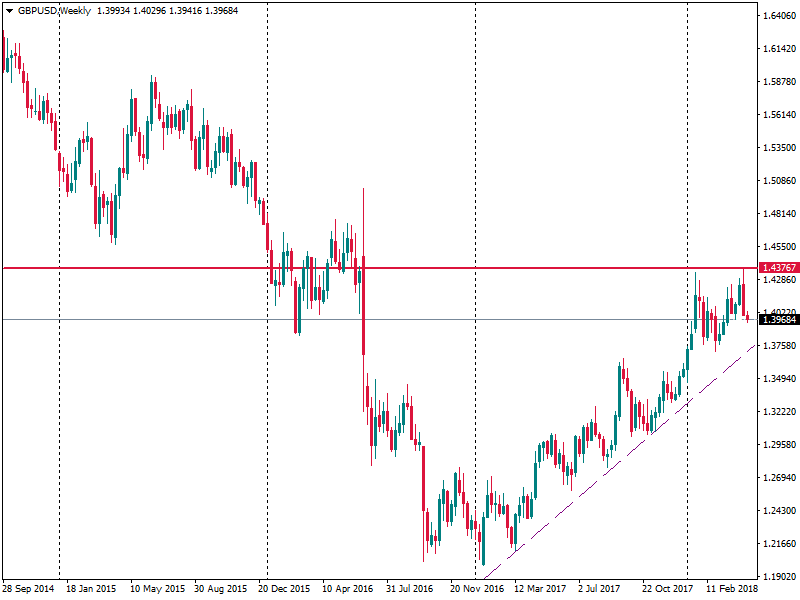Brexit: is there any threat for the pound?
We think that you also noticed that there was no news on the Brexit deal for a long time. Sometimes it seemed that the UK and the EU were coming close to an agreement. However, recent events did not let any hope on that. Doubts that the UK will leave the European Union in March 2019 are growing.
Let’s look what are sticking points for the Brexit agreement and how the Brexit deal will affect the British currency.
The first sticking point is the Irish border. Despite an active dialogue, there is no progress in this issue yet. Last week the EU rejected all UK’s proposals. Moreover, EU declares that there is a high possibility of a crisis in Brexit talks if there is no agreement on Ireland at a June summit.
The second sticking point is the customs union. On April 18 peers voted to keep the UK in the customs union with the EU. However, the government is against this requirement. As a result, we can see not only difficulties between the UK and the EU but even inside the government that greatly exacerbates the process of negotiations.
The third point is expenses of the Brexit. Earlier Theresa May announced an amount of 35-39 billion pounds that the UK will have to pay for the exit from the EU. But it seems like the UK will have to pay more: 3 billion pounds more in the form of new contributions, as well as an additional 2.9 billion pounds in the European Development Fund. Annual payments in 2019 and 2020 will depend on economic forecasts for Great Britain.
As a result of lack of a progress in negotiations, a question about the second referendum is taken into consideration. Although there is no clear answer whether it will be held or not, a possibility of it adds more uncertainty to the Brexit deal.
Furthermore, the current government is losing its positions. According to a ComRes poll for the Sunday Express newspaper, almost half of the British voters want a new centric party. Only 31% think the current government manages the Brexit negotiations well.
Having regard to the above, it is clear that the Brexit negotiations are fragile and there are high doubts that the UK will be able to leave the EU on March 2019 on those conditions the country figures on.
However, what about the currency? Will the Brexit play a major role in the pound’s rate or the Bank of England will be able to help the GBP?
In the middle of April, the pound managed to reach the highest levels since the Brexit referendum. As a result, the main question that appears in traders’ heads whether the pound is able to keep highs or Brexit worries will pull it back.
According to a pound’s movement, we can say that despite different stages of negotiations, the whole picture for the pound is positive. The British currency managed to rise despite the fact that the UK and EU have not come to an agreement yet. The market is used to Brexit uncertainties so some difficulties in the negotiations are not supposed to lead to significant falls.
The most important fact for the currency is an economic outlook. Recent estimations of the UK economic growth showed that the economy is recovering after the referendum in 2016. As a result of a positive assessment of the economy, the Bank of England is supposed to raise the interest rate soon. You should remember that a rate hike encourages a domestic currency.

That is why traders can expect a relatively stable pound’s rate until the UK and the EU comes to an agreement. Volatility is anticipated, however, great crushes are not. Moreover, analysts suppose that until the UK is in the EU and customs union, the pound’s rate is more stable as the economy is used to such trade conditions. So any delays in the UK’s exit are not supposed to damage the pound’s increase.
However, the situation can dramatically change when the negotiations come to the end. It is highly difficult to forecast a reaction of the pound now as there are no clear conditions of the UK’s exit yet.